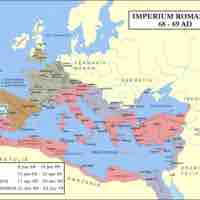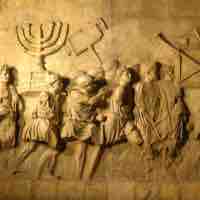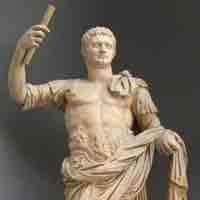Section 5
The Flavian Dynasty
By Boundless

The Flavian dynasty, which began under the rule of Vespasian during the Year of the Four Emperors, is known for several significant historic, economic and military events that took place during their reign.

On the military front, the Flavian dynasty witnessed the siege and destruction of Jerusalem by Titus in 70 and substantial conquests in Great Britain under command of Gnaeus Julius Agricola between 77 and 83.
The eruption of Mount Vesuvius in 79 AD was one of the most catastrophic volcanic eruptions in European history, with several Roman settlements being obliterated and buried, and thereby preserved, under ash.
Under the Flavian dynasty, a massive building program was undertaken, leaving multiple enduring landmarks in the city of Rome, the most spectacular of which was the Flavian Amphitheatre, better known as the Colosseum.

Domitian, the last of the Flavian emperors, was a ruthless autocrat who develop many enemies, some of whom eventually assassinated him, giving rise to the long-lived Nerva–Antonine dynasty.